Related Research Articles

The Cure are an English rock band formed in 1978 in Crawley, West Sussex. Throughout numerous lineup changes since the band's formation, guitarist, lead vocalist, and songwriter Robert Smith has remained the only constant member, though bassist Simon Gallup has been present for all but about three years of the band's history. Their debut album, Three Imaginary Boys (1979), along with several early singles, placed the band at the forefront of the emerging post-punk and new wave movements that had sprung up in the United Kingdom. Beginning with their second album, Seventeen Seconds (1980), the band adopted a new, increasingly dark and tormented style, which, together with Smith's stage look, had a strong influence on the emerging genre of gothic rock as well as the subculture that eventually formed around the genre.
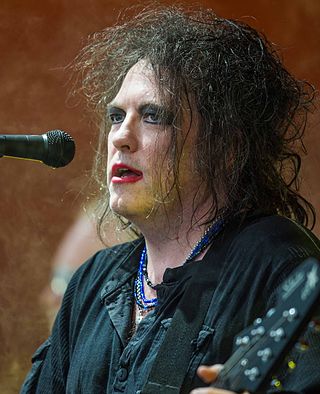
Robert James Smith is an English musician, singer, songwriter, and record producer. He is best known for his work as the co-founder, lead vocalist, guitarist, primary songwriter, and only continuous member of the rock band the Cure since 1978. His unique guitar-playing style, distinctive singing voice, and fashion sense—almost always sporting a pale complexion, smeared red lipstick, black eye-liner, unkempt wiry black hair, and all-black clothes—were highly influential on the goth subculture that rose to prominence in the 1980s.

Seventeen Seconds is the second studio album by English rock band the Cure, released on 18 April 1980 by Fiction Records. The album marked the first time frontman Robert Smith co-produced with Mike Hedges. After the departure of original bassist Michael Dempsey, Simon Gallup became an official member along with keyboardist Matthieu Hartley. The single "A Forest" was the band's first entry in the top 40 of the UK Singles Chart.
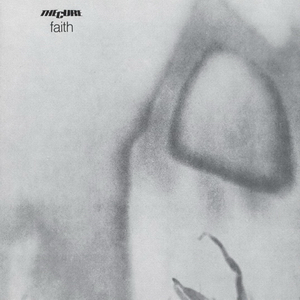
Faith is the third studio album by English rock band the Cure, released on 17 April 1981 by Fiction Records. The album saw the band continuing in the gloomy vein of their previous effort Seventeen Seconds (1980). This stylistic theme would conclude with their next album Pornography (1982).

Standing on a Beach is a greatest hits album by English rock band the Cure, released in the United States on 15 May 1986 by Elektra Records and in the United Kingdom on 19 May 1986 by Fiction Records, marking a decade since the band's founding in 1976. The album's titles are both taken from the opening lyrics of the Cure's debut single, "Killing an Arab".

Concert: The Cure Live is the first live album by English rock band the Cure. It was recorded in 1984 at the Hammersmith Odeon in London and in Oxford during The Top tour. The cassette tape edition featured, on the B-side, a twin album of anomalies, titled Curiosity : Cure Anomalies 1977–1984.

"A Forest" is a song by the English rock band the Cure. Co-produced by Mike Hedges and the band's Robert Smith, it was released as a single from the band's second album Seventeen Seconds on 28 March 1980. It was their debut entry on the UK Singles Chart, reaching number 31. The accompanying music video was first shown on BBC's Top of the Pops programme on 24 April 1980.
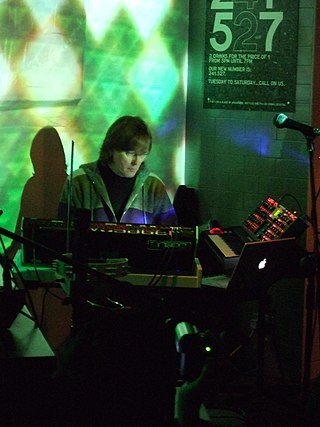
Roger O'Donnell is an English keyboardist best known as a longtime member of The Cure, which he first joined in 1987 and for which he has served three different tenures. O'Donnell has also performed as a touring and session keyboardist for many artists and maintains an active solo career.

Simon Johnathon Gallup is an English musician who is best known as bassist for The Cure, which he first joined in 1979 and for which he has played through most of the band's history. Gallup is the second longest-serving member of the band after group leader Robert Smith.

Boris Peter Bransby Williams is an English musician, best known as the drummer for The Cure from 1984-1994, and for forming the band Babacar in the late 1990s.

Pearl Thompson is an English musician and artist. Thompson is best known as a member of the English alternative rock band The Cure from 1983-1993 and 2005-2011, during which he was credited as Porl Thompson and played mainly guitar with occasional keyboards and saxophone. After leaving the Cure he has focused on a successful career as a visual artist.
Michael Stephen Dempsey is an English musician, best known as the bassist for The Cure and The Associates.
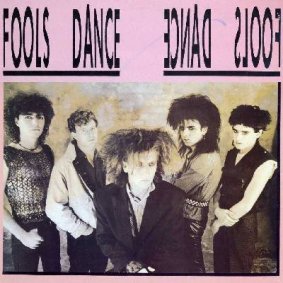
Fools Dance were an English rock band active from 1983 to 1987, chiefly noted for their connections to The Cure, The Stranglers, and Roxy Music -- at one point or another, members of all three of these groups were with the band.
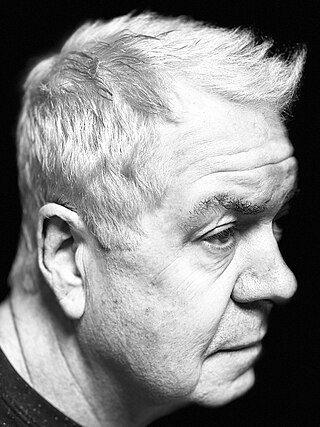
Laurence Andrew Tolhurst, known professionally as Lol Tolhurst, is an English musician, songwriter, producer, and author. He was a founding member of The Cure, for which he first played drums before switching to keyboards. He left the Cure in 1989 and later formed the bands Presence and Levinhurst. He has also published two books and developed the Curious Creatures podcast.
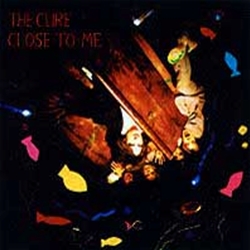
"Close to Me" is a song by English rock band the Cure, released in September 1985 as the second and final single from their sixth album, The Head on the Door.
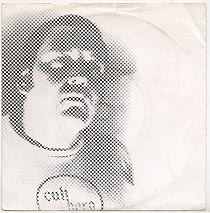
"I'm a Cult Hero" is a single released by an extended lineup of the Cure under the name Cult Hero.

Presence were a British rock band started by Gary Biddles, Lol Tolhurst, and Michael Dempsey. Dempsey and Tolhurst were founding members of The Cure, and Biddles was a former Cure roadie who previously played in Fools Dance with Simon Gallup.
The Magazine Spies were an English post-punk band from the town of Horley. They were active during 1979 and 1980, and are notable for band members who went on to play in the Cure, Fools Dance and related projects. The Magazine Spies were also known as the Magspies and Mag/Spys; a wordplay on "magpies".
The Cure: "Reflections" refers to a set of shows in which The Cure played their first three albums Three Imaginary Boys, Seventeen Seconds and Faith in full at the VividLive festival at the Sydney Opera House on 31 May and 1 June 2011. All three albums were played in their entirety on both nights, along with several other tracks from the same era.
References
- 1 2 3 Price, Simon (2023). Curepedia: An A-Z of The Cure. New York, NY: William Morrow. pp. 174–175. ISBN 978-0-06-306864-3.
- ↑ Walsh, Carmel (3 February 2023). "The Formation Of The Cure (Part Two): From Easy Cure To The Cure To Cult Hero And Back - Memories And Memorabilia From Crawley - God Is In The TV" . Retrieved 11 February 2024.
- 1 2 Uncut, ed. (2016). "The Cure". The Ultimate Music Guide. pp. 14–17.
- ↑ Buskin, Richard (December 2004). "Classic Tracks: The Cure 'A Forest'". www.soundonsound.com. Retrieved 11 February 2024.
- ↑ Price, p. 76-77.
- ↑ "You Gotta Have Faith: The Cure's Third Album, 40 Years On". TheQuietus.com. Retrieved 12 April 2021.